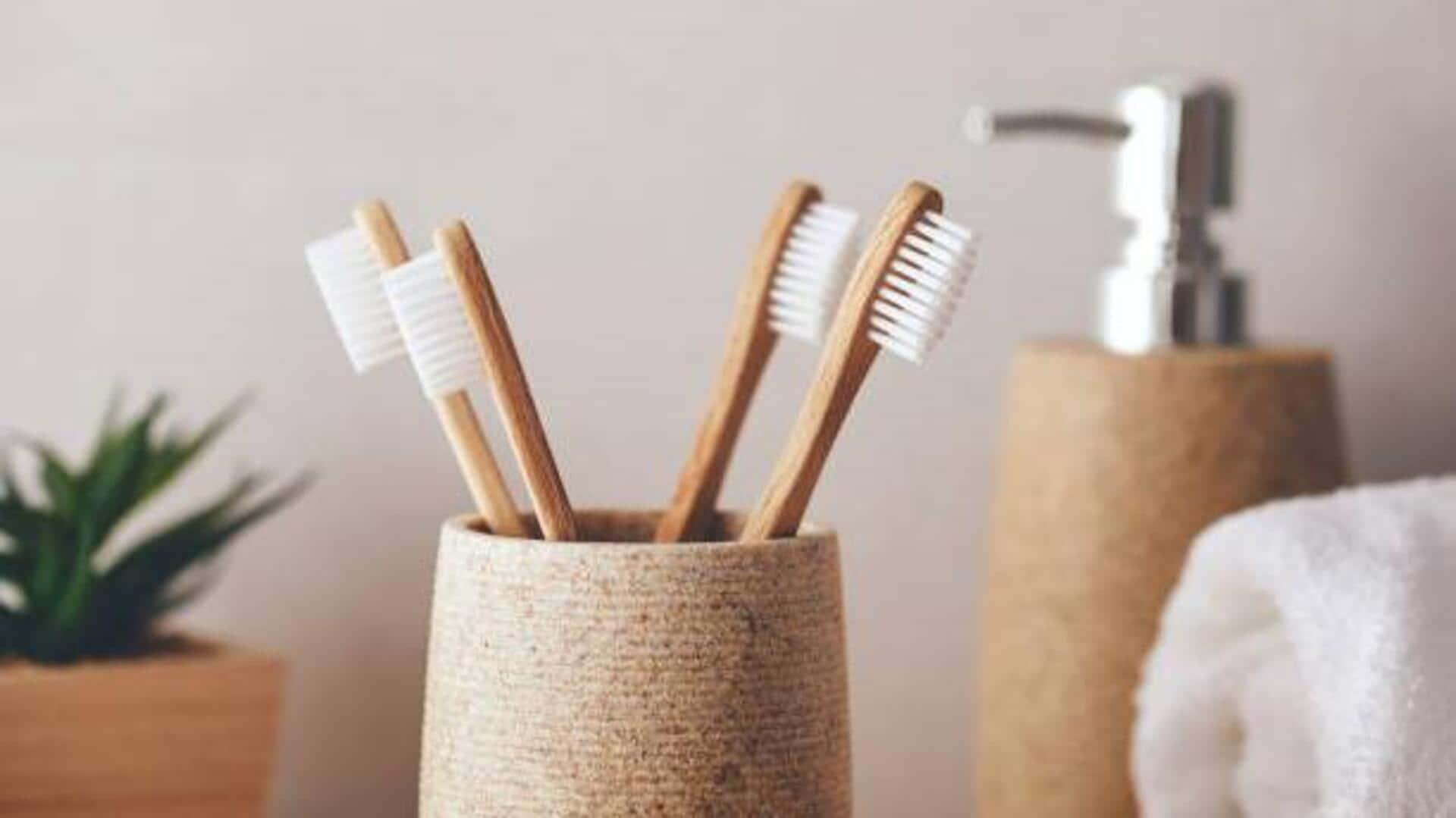
How to cultivate an eco-friendly lifestyle at home
What's the story
Transitioning to a more sustainable lifestyle can begin right at home with simple swaps that can make a world of difference. With conscious choices, you can cut down on your carbon footprints and contribute to the conservation of the environment. Not only do these changes benefit the planet, but they also promote healthier living spaces. Here are five easy eco-friendly swaps to make your home greener.
Energy-efficient lighting
Switch to LED lighting
Replacing traditional incandescent bulbs with LED lights is an effective way to reduce energy consumption. LEDs use up to 75% less energy and last up to 25 times longer than incandescent lighting. Not only does this swap lower electricity bills, but it also reduces the frequency of bulb replacements, minimizing waste. With various options available in terms of brightness and color, LEDs offer flexibility while being environmentally friendly.
Sustainable shopping
Use reusable shopping bags
Opting for reusable shopping bags instead of single-use plastic bags is an easy yet impactful change. Plastic bags are a major contributor to pollution and take hundreds of years to decompose. Reusable bags are usually made from cotton or jute and are sturdy, allowing them to be used multiple times and reducing waste in landfills and oceans. Keeping a few reusable bags handy makes sure they're always available when needed.
Green cleaning solutions
Choose natural cleaning products
Making a switch from chemical-laden cleaning products to natural alternatives reduces indoor air pollution and exposure to harmful substances. Many eco-friendly cleaning products utilize plant-based ingredients that are biodegradable and non-toxic. They clean surfaces effectively, without leaving behind harmful residues or contributing to water pollution when washed away.
Water conservation techniques
Install water-saving fixtures
Installing water-saving fixtures, like low-flow showerheads and faucet aerators, can greatly reduce water usage at home. These devices keep adequate water pressure but use less of it. This not only reduces utility bills but also preserves this precious resource. Simple changes, like fixing leaks quickly, also go a long way in efficient water management.
Sustainable materials
Opt for bamboo products
Since bamboo grows much faster than other traditional woods, it makes an excellent alternative material. In fact, it is one of the most renewable resources available. Products like bamboo toothbrushes, kitchen utensils, and flooring options offer sustainable alternatives without compromising on quality. Plus, bamboo is grown using fewer pesticides and fertilizers than regular crops, making it even more eco-friendly.